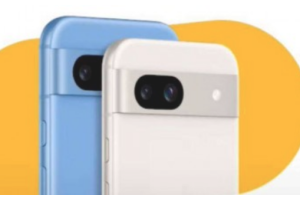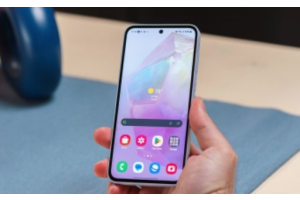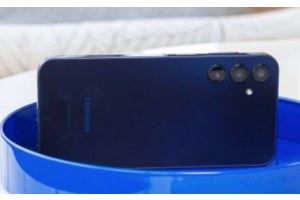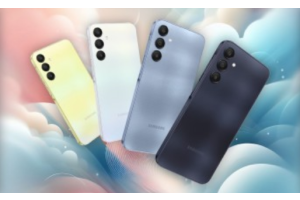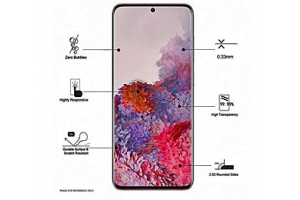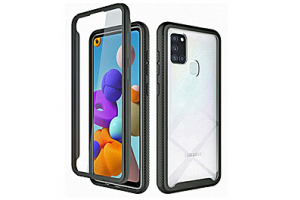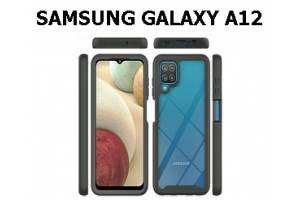
It is an undisputed fact that every Smartphone needs a genuinely protective phone case for its protection, no matter how rugged. There are hard cases, soft phone cases, and even combo of both in Smartphone cases available to you, but the main task lies in choosing which type of phone case will actually protect your phone?
In this article, we will be providing you with all the relevant information you need to know before you decide between hard cases and soft cases for your phone. So, keep reading to find out the differences between hard and soft phone cases, and which one will protect your Smartphone best.
Hard Cases
Hard Smartphone cases are made up of ABS/PC plastic, which is a great combination of hard plastic and resin. It is more flexible than the regular PC plastic, which is usually used for making shatterproof windows and eyeglass lenses. The hard cases also sometimes feature tempered glass or metal parts.
Talking about the appearance, purely hard cases are often on the slimmer side. Most of the people usually get attracted to the glossy look a hard case can carry. It is also much easier to attach Smartphone accessories such as phone wallets or Pop Sockets to a smooth, hardback Smartphone.
On the contrary, the smooth or soft surface of a case tends to show scratches on it very easily. It also lets your phone slip more easily since it does not have much friction to get in places like the arm of your couch, in your pocket, or other unsteady places where it could easily fall from. But if you go for a hard case, it is best to get one with a textured backing.
Moreover, it is to be noted that in case of a fall, the hard plastic of the case does not let the impact pass on directly to your phone, but it cannot really absorb it well either. Instead of that, the hard cases are designed to redistribute the impact through the case, protecting your phone from facing the brunt of the blow. This is how the use of hard cases lessens the risk of damage, but not as much as if the shock was absorbed before it hit the phone.
Now, when it comes to heat, use of hard cases is a sensible idea because they are good at protecting your phone against heat and cold that comes through outside sources, mainly your hand or weather can damage your phone. Also, the heat generated from the battery of your phone has a hard time escaping.
Pros
- Good insulation
- Slim designs
- Keeps its shape well
Cons
- Poor grip
- Poor heat conduction
- Poor shock absorption
Soft Cases
Soft cases are typically either made up of TPU (soft plastic), silicone, or leather. For the environment lovers, use of soft cases is an ideal option because the TPU plastic and silicone used in the case are completely recyclable, and the real leather used which makes it an incredibly durable material.
As for design, soft cases usually are pretty slim. The soft leather cases are the thinnest but it can be offered as flip cases that can be folded all the way around the Smartphone, increasing bulk and screen protection to the phone. These cases often come accompanied with storage for your credit cards and ID as well.
However, the fact is, the soft cases get easily tarnished. Silicones case easily picks up dust and other substances which usually lead to a strain brown colour of the case because of the sweat and dead skin cell on your hand. These cases can also become stained by smoke suspended in the air or accumulate small nicks from abrasive surfaces.
Over the months, the natural stretching of the case that ideally comes from handling, dropping or squeezing a silicone case will also cause the case to warp and lose its grip. Talking about real leather, on the other hand, you will get a softer case that molds slightly to your hand over time as you use it, but vegan leather will wear like normal plastic.
A soft case makes it easier for the case to get friction in the user’s hand, pocket, or unsteady surface. The soft cases are good at providing better protection against damages or any impact and even for situations when it drops flat on their back, but its soft material can easily absorb the shock instead of redirecting it. You just need to make sure the case protrudes above the phone screen, or it would not help when your phone falls face-first.
The flexibility possessed by soft cases causes a unique problem though as they may sometimes fly away from the phone, when it falls. It happens because when the phone strikes the ground the case wiggles a little as it is bound to absorb the impact. If that fall is enough to shake the phone loose, with the same force the phone will get pushed away. So, in that case, you need to aim for a soft case that has more density around the corners.
Pros
- Good grip
- Good shock absorption
- Good heat conduction
Cons
- Phone can fall out
- Can get stained from regular use
- Warps over time
Final Remarks
Here our journey of providing you with information on whether to go for a hard or soft phone case comes to an end. Whatever hard or soft cases you’ll choose, the main purpose of using a case is to protect your phone and highlight your personality. You can also know the additional features you might want in a case and easily choose between hard and soft phone cases.
Additionally, it is advised that you don’t use a phone case for more than 3-months, so it is better to buy a hard phone case and soft case at a time, so that two different types of cases will apply in different needs in daily usage. This also extends the life of your phone case.


